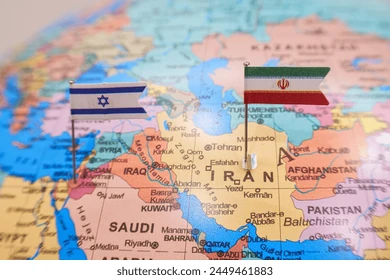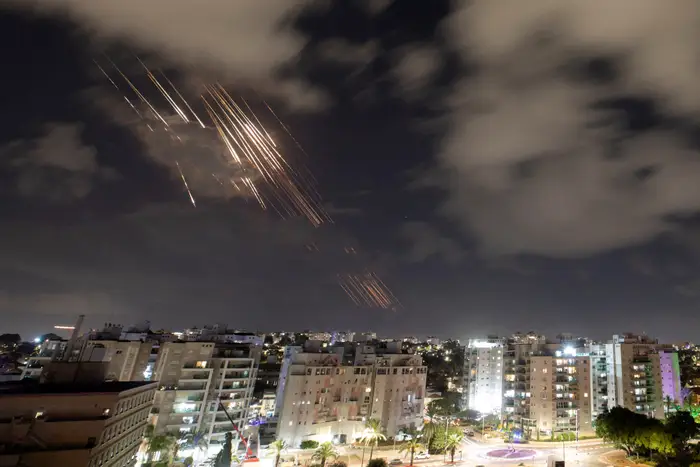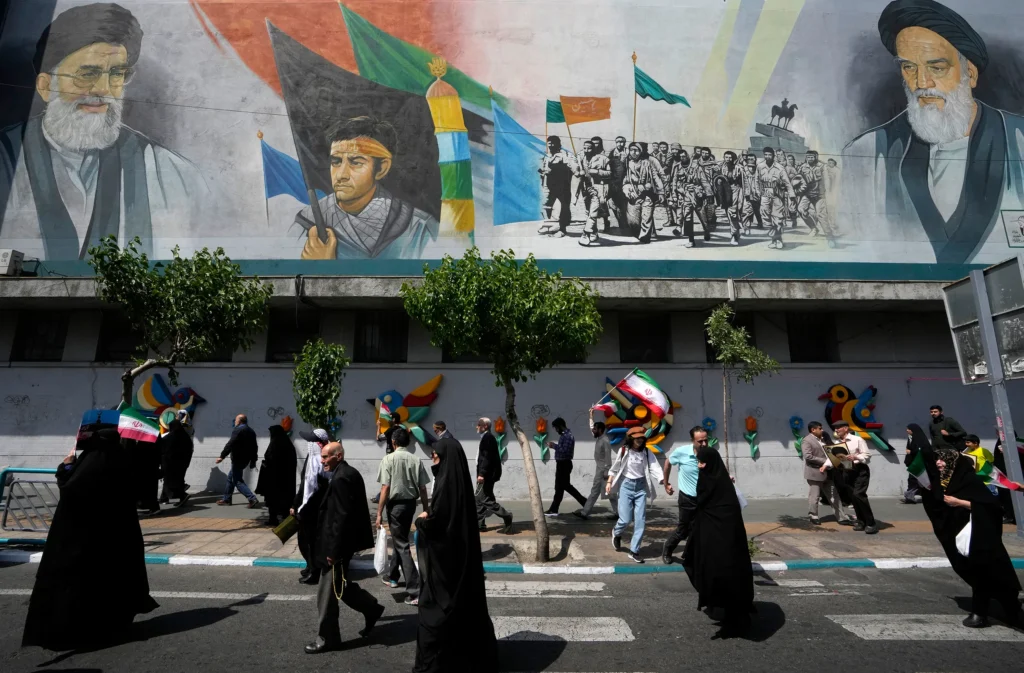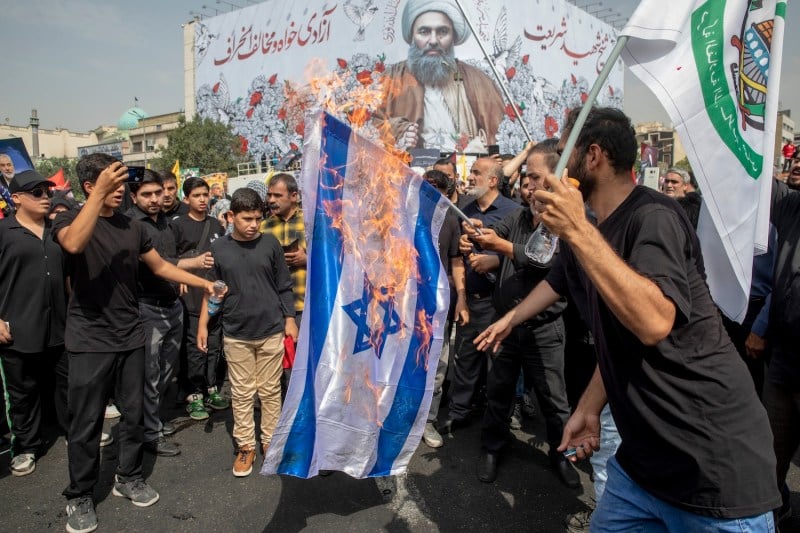“Iran-Israel News: Get the latest updates on tensions between Iran and Israel, breaking news on recent attacks, military actions, and regional impact. Stay informed on this evolving Middle Eastern conflict and its global implications.”
Introduction
The relationship between Iran and Israel has long been fraught with tension, with the two nations often appearing on the brink of open conflict. Recent escalations have kept the world watching closely, as any significant clash between these powerful Middle Eastern countries could have widespread ramifications. This article provides a detailed look at the latest developments, background, and potential future of the Iran-Israel relationship.
Table of Contents
Background on Iran-Israel Relations

Origins of the Conflict
The roots of the Iran-Israel conflict stretch back decades. Following the Islamic Revolution in 1979, Iran adopted an anti-Israel stance, viewing the state as an occupying force. Since then, this ideological and geopolitical opposition has only deepened.
Key Historical Events
From skirmishes in Syria to the 2006 Hezbollah-Israel war, various events have intensified hostilities. Over time, both nations have increased their influence in the region, with Iran supporting groups like Hezbollah and Hamas, while Israel works to counter these alliances.
Read more:- The Legacy of John Cena: From Wrestling Superstar to Cultural Icon
Why the Conflict Intensified in Recent Years

Regional Influence
Both Iran and Israel seek to expand their influence in the Middle East. Iran, through proxies and alliances with groups like Hezbollah and Hamas, and Israel, by building diplomatic ties with Arab nations.
Nuclear Ambitions
Iran’s pursuit of nuclear technology has raised alarms, especially in Israel, which sees a nuclear-capable Iran as an existential threat. This perceived threat has led Israel to take preventive actions, often through covert operations.
Latest Developments

Israel Attacks Iran Today
Today, reports emerged of Israel conducting operations aimed at weakening Iranian influence. These often involve strikes on Iranian forces and weapons facilities in Syria, where Iran is heavily involved.
Iran’s Recent Moves Against Israel
In response, Iran has backed rocket attacks from Hezbollah in Lebanon and supported cyber-attacks targeting Israeli infrastructure, marking a constant exchange of hostilities.
The Role of the U.S. in the Iran-Israel Tensions

U.S. Support for Israel
The United States, a longstanding ally of Israel, has provided both military and financial support. This alliance plays a major role in shaping the region’s dynamics and serves as a significant deterrent against direct Iranian aggression.
Impact of U.S. Sanctions on Iran
U.S. sanctions on Iran have weakened its economy, which affects its ability to fund regional activities. Despite economic challenges, Iran continues to support groups that share its anti-Israel sentiment.
Iran’s Nuclear Program: A Major Flashpoint

Iran’s Nuclear Capabilities and Limitations
Iran insists its nuclear program is for peaceful purposes, but Israel remains skeptical, fearing it could eventually lead to nuclear weapon development.
Israel’s Concerns and Preventative Measures
Israel has reportedly taken several steps, including intelligence operations, to stall Iran’s progress on nuclear technology.
Military Capabilities of Iran and Israel

Comparative Analysis of Military Strength
While Israel boasts advanced technology and strong defense systems like the Iron Dome, Iran relies on a combination of missile forces, ground troops, and proxy networks.
Cyber Warfare and Technology
Both nations have invested heavily in cyber capabilities, frequently using cyber attacks as a form of indirect warfare. In recent years, cyber operations have targeted critical infrastructure, financial systems, and intelligence networks on both sides.
How the Conflict Affects Neighboring Countries
Impact on Lebanon, Syria, and the Gulf

Iran’s alliances with groups in Syria and Lebanon place these countries on the frontline of any escalation. Meanwhile, Gulf nations closely watch, as increased tensions could lead to broader regional conflicts.
Potential for Regional Escalation
The Iran-Israel conflict has the potential to spark broader regional confrontations, especially as neighboring countries get drawn into the dynamics.
Future Scenarios in the Iran-Israel Conflict

Potential Outcomes of the Conflict
Several scenarios could unfold, ranging from increased hostilities to a potential, though unlikely, diplomatic resolution.
Possible Diplomatic Solutions
Efforts from international organizations could mediate and encourage peace, although entrenched hostilities make this challenging.
International Reactions to the Conflict

Role of the United Nations
The UN frequently discusses the Iran-Israel tensions, with many nations advocating for restraint and diplomatic resolutions.
Reactions from European and Middle Eastern Countries
European countries tend to support diplomacy, while Middle Eastern nations are divided, balancing between alliances and interests.
Conclusion
The ongoing conflict between Iran and Israel continues to shape the geopolitical landscape, with each escalation reminding the world of the fragile balance in the region. International efforts at diplomacy, though challenging, offer a potential path forward. As both nations pursue their interests, the world watches closely, hoping for peace yet preparing for possible conflict.
FAQS
1. Why are Iran and Israel in conflict?
The conflict stems from ideological, political, and territorial differences, worsened by regional rivalries and nuclear concerns.
2. Is the Iran-Israel conflict likely to escalate into a full-blown war?
While both nations have avoided direct warfare, tensions remain high, with proxy conflicts and diplomatic efforts constantly in flux.
3. How does the U.S. influence the Iran-Israel situation?
The U.S. supports Israel militarily and diplomatically, while sanctions on Iran limit its regional influence.
4. Why is Iran’s nuclear program a major concern for Israel?
Israel views a nuclear-capable Iran as a significant existential threat, leading to proactive measures to halt progress.
5. What role does media play in the Iran-Israel conflict?
Social media and news outlets influence public perception, shaping opinions and sometimes fueling sentiments in both countries.

